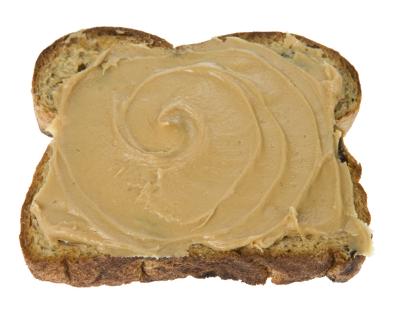Peanut butter allergies can cause serious health difficulties. Moms with children who have an allergy to peanuts must be diligent about monitoring what their children eat. Unfortunately, the number of parents who have to guard their children from peanuts are increasing. Peanut allergies in children tripled between the years 1997 and 2008, according to Mount Sinai School of Medicine.
Facts
Peanut butter allergies are a serious problem in the United States. Around 2 percent of children suffer from peanut allergies, according to the Mount Sinai School of Medicine website. This percentage is based on data collected in 2008 and is expected to continue to rise. Of those children who suffer from peanut allergies, 35 percent of them also suffer from tree nut allergies. One out of five will outgrow this allergy by the age of six, but the other four will suffer from an allergy to peanuts for the rest of their lives, according to Dr. Michael C. Young.
Causes
No one can say for sure what causes peanut allergies, but a few theories abound. One theory speculates that the rise in peanut allergies comes from the fact that more and more young children and pregnant women are eating peanut butter. Another theory suggests that immune systems in young children attack things such as foods or pollen because there are fewer diseases to target than in the past. This is called the “Hygiene Hypothesis.” In short, good hygiene leads to less disease, but more allergies.
Symptoms
Children with peanut butter allergies usually show a reaction in the skin, according to KidsHealth. The skin around the mouth may start to itch, or turn red. Hives, which are large, sometimes raised blotches, may develop on the face or body. Affected people may sneeze, have watering eyes or develop a runny nose. People who have serious allergies to peanuts may have difficulty breathing or may develop a swollen tongue and throat. They may also experience stomach pain, along with diarrhea and vomiting. In such cases, immediate medical care is very important.
Diagnosis
Parents who suspect their child may have an allergy to peanut butter should get a diagnosis from a doctor who specializes in allergies, called an allergist. The doctor will test your child for the allergy in a controlled setting so that they can help your child if a serious reaction occurs. The allergist will place a small drop of peanut oil on your child’s skin to see how the skin reacts. He may also take a sample of your child’s blood so that it can be tested for the antibodies that attack peanuts in people who have the allergy.
Prevention/Solution
There is no way to cure peanut butter allergies, according to KidsHealth. The only way to prevent a child with a peanut allergy from getting sick is to make sure she is not exposed to any foods that contain peanuts. Parents should pay close attention to food labels and stay away from anything that has a label that says “may contain nuts” or has other warnings pertaining to nuts. Many common foods do contain peanuts or other nuts, including cookies, ice cream and even some sauces.





